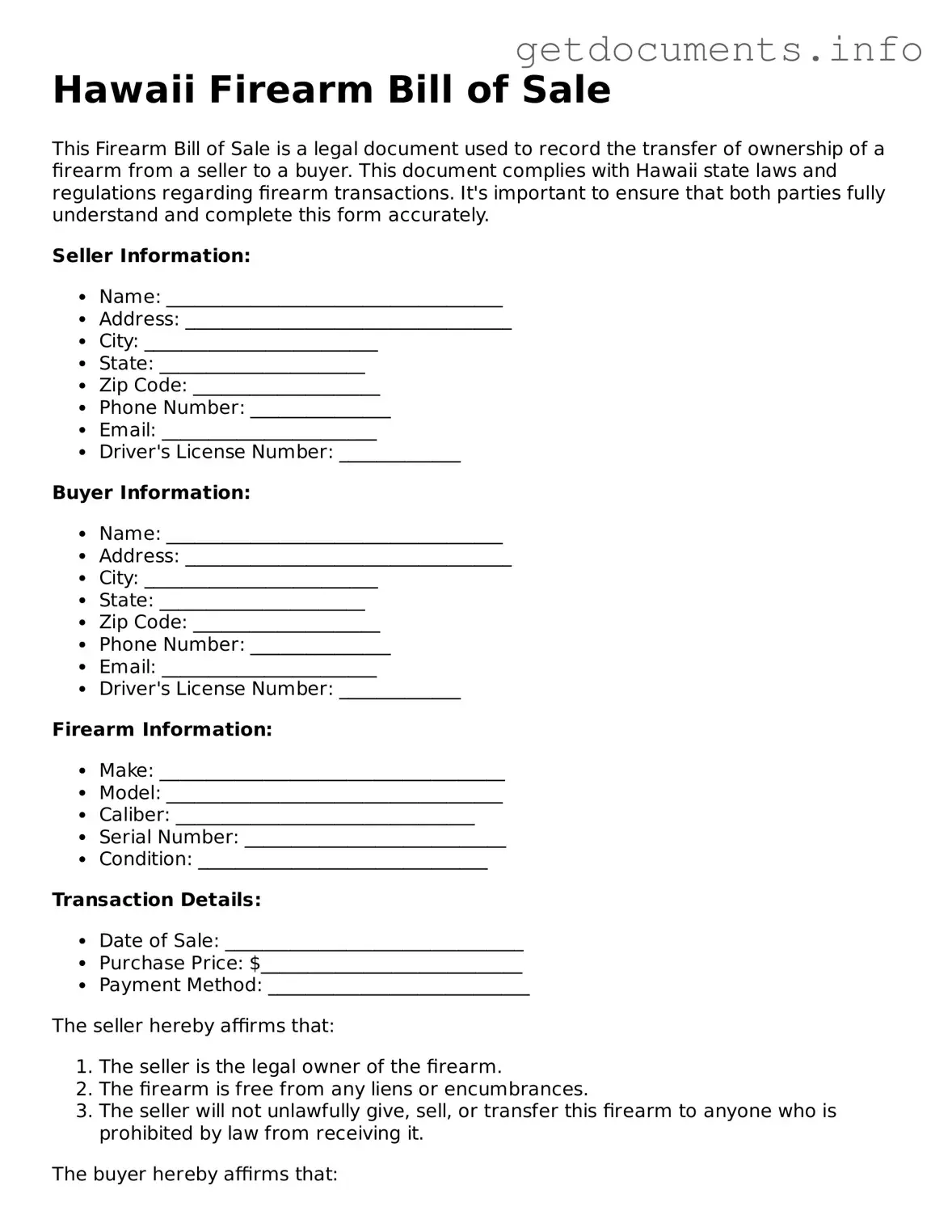Free Firearm Bill of Sale Template for Hawaii
A Hawaii Firearm Bill of Sale form is a legal document that records the transfer of ownership of a firearm between a seller and a buyer. This form serves to protect both parties by providing proof of the transaction and ensuring compliance with state laws. If you're ready to facilitate a firearm sale, fill out the form by clicking the button below.
Access Firearm Bill of Sale Editor

Free Firearm Bill of Sale Template for Hawaii
Access Firearm Bill of Sale Editor
Got places to be? Complete the form fast
Fill out Firearm Bill of Sale online and avoid printing or scanning.
Access Firearm Bill of Sale Editor
or
⇩ PDF File
